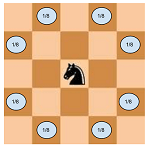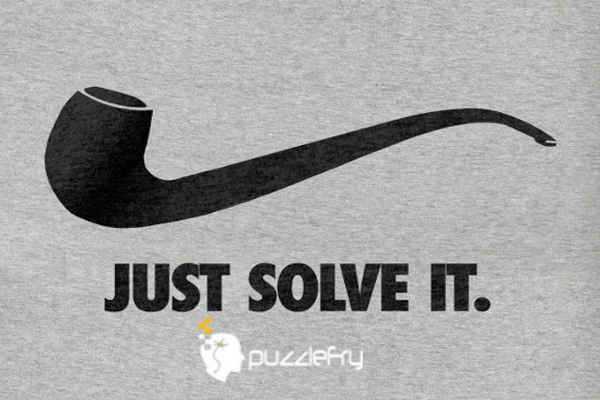Brain Teasers & Puzzles
-
Five friends pooled their resources one day and pieced a CD together from songs they had written. They called their band “The Puzzle Fry” and ended up playing a number of live gigs at local events. Determine the full name of each band member, the instrument (or mixing console) each played, the brand of equipment each used, plus each member’s favorite magazine.
- Steve wasn’t the sound engineer. One of the women enjoyed EQ magazine.
- Angie and Steve didn’t like Recording magazine. The bass player used Ibanez equipment.
- Mr. Magnus didn’t use Mackie equipment. Mark’s last name wasn’t Hydal and he didn’t play keyboard.
- The sound engineer, whose last name wasn’t Engel, enjoyed reading Mix magazine. The person who used Yamaha drums wasn’t Robert, but their last name is Hydal.
- The five band members (in no particular order) were: Mark Scott, the female bass player, the person who read Musician, the one who used Peavey equipment, and Robert.
- Shelley’s last name was not Hydal or McArthur and she didn’t use Roland equipment. Mackie only developed equipment for live sound and recording NOT musical instruments.
- Steve McArthur was the guitarist.
Use the grid to help solve the puzzle!
 View SolutionSubmit Solution
View SolutionSubmit Solution- 1,640.3K views
- 1 answers
- 1 votes
-
In a zoo Peter was in charge of feeding all of the animals in the morning. He had a regular schedule that he followed every day. Can you figure it out from the clues? - The giraffes were fed before the zebras but after the monkeys.
- The bears were fed 15 minutes after the monkeys.
- The lions were fed after the zebras.
 View SolutionSubmit Solution
View SolutionSubmit Solution- 1,641.4K views
- 1 answers
- 0 votes
-
You have 3 switches in a room. One of them is for a bulb in next room. You can not see whether the bulb is on or off, until you enter the room. What is the minimum number of times you need to go in to the room to determine which switch corresponds to the bulb in next room.
View SolutionSubmit Solution- 1,696.3K views
- 5 answers
- 1 votes
-
Given the size of the chess board and initial position of the knight, what is the probability that after k moves the knight will be inside the chess board.
Note:-
1) The knight makes its all 8 possible moves with equal probability.
2) Once the knight is outside the chess board it cannot come back inside.
Puzzlefry added Info-
This challenge is originally from a blog post of crazyforcode.com published under the CC BY-NC-ND 2.5 IN licence.View SolutionSubmit Solution- 1,642.6K views
- 2 answers
- 1 votes
-
Imagine that you’re about to set off walking down a street. To reach the other end, you’d first have to walk half way there. And to walk half way there, you’d first have to walk a quarter of the way there. And to walk a quarter of the way there, you’d first have to walk an eighth of the way there. And before that a sixteenth of the way there, and then a thirty-second of the way there, a sixty-fourth of the way there, and so on.
Ultimately, in order to perform even the simplest of tasks like walking down a street, you’d have to perform an infinite number of smaller tasks—something that, by definition, is utterly impossible. Not only that, but no matter how small the first part of the journey is said to be, it can always be halved to create another task; the only way in which it cannot be halved would be to consider the first part of the journey to be of absolutely no distance whatsoever, and in order to complete the task of moving no distance whatsoever, you can’t even start your journey in the first place.
View SolutionSubmit Solution- 1,640.5K views
- 1 answers
- 0 votes
-
One person has some money in his pocket, He visits four temple on the way. As soon as he enters a temple, his money gets double and he offers Rs. 100 in each temple thus his pocket gets empty after he returns from the fourth temple. Now the question is how much money he had initially ?
View SolutionSubmit Solution- 1,642.4K views
- 1 answers
- 1 votes
-
A crocodile snatches a young boy from a riverbank. His mother pleads with the crocodile to return him, to which the crocodile replies that he will only return the boy safely if the mother can guess correctly whether or not he will indeed return the boy. There is no problem if the mother guesses that the crocodile will return him—if she is right, he is returned; if she is wrong, the crocodile keeps him. If she answers that the crocodile will not return him, however, we end up with a paradox: if she is right and the crocodile never intended to return her child, then the crocodile has to return him, but in doing so breaks his word and contradicts the mother’s answer. On the other hand, if she is wrong and the crocodile actually did intend to return the boy, the crocodile must then keep him even though he intended not to, thereby also breaking his word.
The Crocodile Paradox is such an ancient and enduring logic problem that in the Middle Ages the word “crocodilite” came to be used to refer to any similarly brain-twisting dilemma where you admit something that is later used against you, while “crocodility” is an equally ancient word for captious or fallacious reasoning
View SolutionSubmit Solution- 1,643.0K views
- 1 answers
- 0 votes
-
Imagine you’re holding a postcard in your hand, on one side of which is written, “The statement on the other side of this card is true.” We’ll call that Statement A. Turn the card over, and the opposite side reads, “The statement on the other side of this card is false” (Statement B). Trying to assign any truth to either Statement A or B, however, leads to a paradox: if A is true then B must be as well, but for B to be true, A has to be false. Oppositely, if A is false then B must be false too, which must ultimately make A true.
Invented by the British logician Philip Jourdain in the early 1900s, the Card Paradox is a simple variation of what is known as a “liar paradox,” in which assigning truth values to statements that purport to be either true or false produces a contradiction. An even more complicated variation of a liar paradox is the next entry on our list.
Submit Solution- 1,641.7K views
- 0 answers
- -1 votes
More puzzles to try-

Precious thing with you
What is more precious than ruby, more lasting than gold, what can never be traded, stolen or sold. Comes with ...Read More »
Divide The Number
Divide 110 into two parts so that one will be 150 per cent of the other. What are the 2 ...Read More »
An unopened package
A man is lying dead in a field. Next to him there is an unopened package. There is no other ...Read More »
BOXES WITH MARBLES
You have three boxes full of marbles. There are stickers saying “white” “red” “red and white” on them indicating what ...Read More »
Happy Diwali Puzzle
Replace the alphabet with the number such that the below equation holds. HAPPY + DIWALI ————– HDLALA ————–Read More »
Tower of Hanoi 3 Disk Puzzle Game – Play Online
Tower of Hanoi 3 Disk Puzzle Game The goal of the puzzle is to move all the disks from the ...Read More »
The beginning of eternity riddle
I am The beginning of eternity, The end of time and space, The beginning of every end and The end ...Read More »
Stuck in a House
you are stuck in a house you have four objects to use – Chair, Ladder, Piano, and axe. What would ...Read More »
Hidden Triangles
Spot The Number of Triangles in the figure.Read More »
Hour Glass Puzzle
I have two sand hourglasses: 1. A 7 minute one and 2. An 11-minute one. Using just these 2 sand ...Read More »
Can be saved but not made
What can be saved but not made, can be taken but not given, can be short or long, and can ...Read More »
Omnipresent
It is invisible, yet everywhere. It is not active in some places. Sometimes, you can feel it. It can be ...Read More »
Measure the quantity
We have three containers which hold 19, 13 and 7 ounces of liquid respectively. The 19 ounce container is empty ...Read More »
Funny Rebus
What does below Rebus mean ? esgg sgeg gegs gsgeRead More »
Goes through a door
It goes through a door, but never goes in or comes out. What is it?Read More »
DROP EGG WITHOUT BREAKING
How can you drop a raw egg onto a concrete floor without cracking it?Read More »
Bus interesting puzzle
You are driving a bus. Six people get on, two people get off, then ten people get on and five ...Read More »
The Cold Drink
At a bar, there is a bucket containing ice, some of which has melted. A bartender gets an ice cube ...Read More »
Make a Fire with a Single Stick Puzzle
Can you make a fire with just a single stick?Read More »
Greek philosophers Why does anything exist discussion puzzle
One day three Greek philosophers settled under the shade of an olive tree, opened a bottle of Retsina, and began ...Read More »



